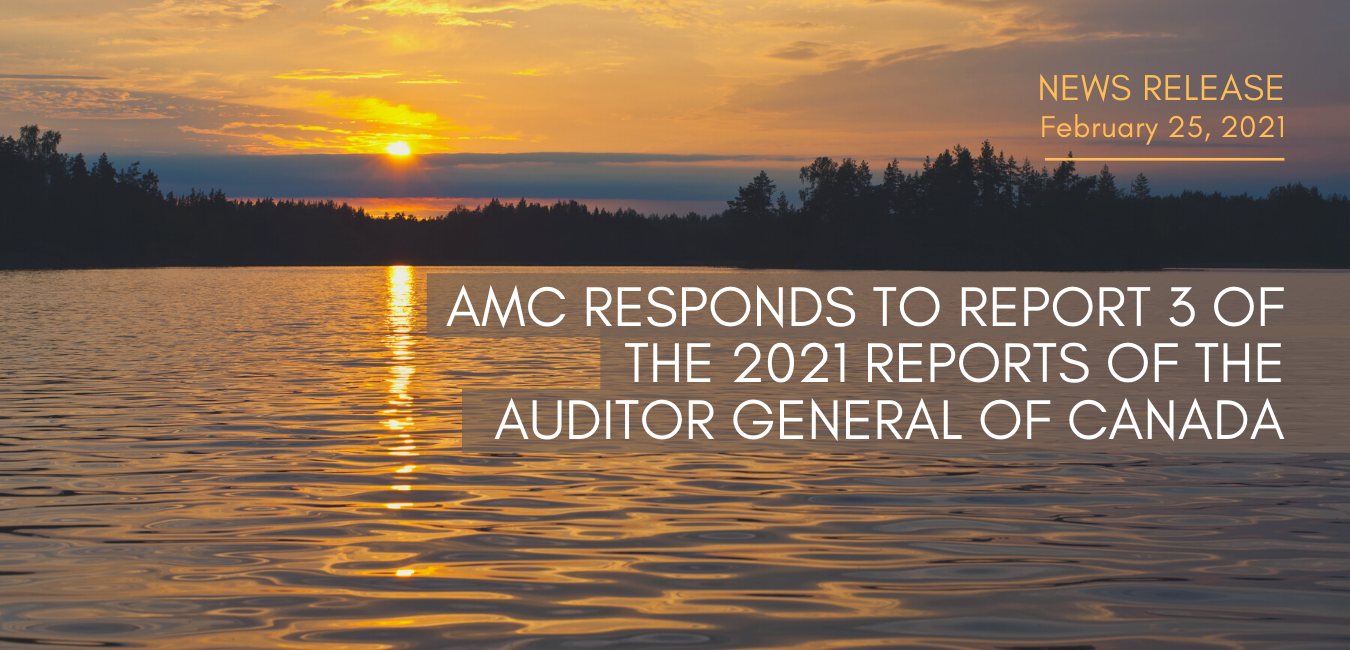AMC Responds to Report 3 of the 2021 Reports of the Auditor General of Canada

February 25, 2021
Treaty One Territory, Manitoba
alexpapineau
Treaty One Territory, Manitoba – The Assembly of Manitoba Chiefs (AMC) issues this statement in response to today’s release of Report 3 – Access to Safe Drinking Water in First Nations Communities – Indigenous Services Canada by the Office of the Auditor General of Canada.
Report 3 focuses on whether Indigenous Services Canada (ISC) provided adequate support to First Nations to ensure that they have safe drinking water. It also examined whether ISC determined and provided the amount of funding necessary to operate and maintain drinking water infrastructure. It also looked at whether ISC, in collaboration with First Nations, made progress in developing a regulatory regime for drinking water in First Nations.
AMC Grand Chief Arlen Dumas stated:
I thank the Auditor General for her report on Indigenous Services Canada’s progress on increasing First Nations’ access to clean drinking water. The AMC also continues to acknowledge Minister Marc Miller, and the efforts put forth by his department back in December 2020 and securing $1.5 billion in new funding over the next six years for First Nations water and wastewater infrastructure.
However, as the Auditor General points out, ISC knew that it was not securing and providing the required amount of funding to meet the Prime Minister’s election promises and its self-imposed deadline of ending all drinking water advisories on First Nations by March 31, 2021. The department knew and failed to address outdated policies, underfunding, ongoing reliance on interim solutions and a lack of regulatory regimes. This all led to First Nations being forced to go with the lowest bidder on RFPs for water treatment plants, which then led to substandard construction and training. This negligence led to broken promises and put people’s lives at stake.
I agree with the Auditor General that this is a very disheartening situation. It is very concerning that this long-standing issue is still not resolved after several decades of advocacy by the AMC and First Nations in Manitoba. The Assembly has long advocated for First Nations’ stewardship over our water resources and a Manitoba First Nations Water and Infrastructure Commission based on First Nations’ principles, values and beliefs.
First Nations water resources are sacred and have been desecrated by Hydro development, rendering our once pristine waters undrinkable and unsafe for bathing. It is unacceptable that in 2021 that the basic human necessity for clean drinking water is denied for some of our First Nations. It is absolutely tragic that babies in some of our First Nations in Manitoba have been horribly disfigured and injured due to having to bathe in unsafe drinking water. This would never be acceptable in a mainstream municipality. In fact, when the water system was contaminated with an e-coli outbreak in Walkerton, no expense was spared in rectifying that situation. Unfortunately, the same concern and priority are not extended to First Nations in this country.
The AG says that even with new funding, it is unclear if First Nations can operate their own water systems collectively or individually without meaningful consultation on a regulatory regime. I disagree.
First, the report clearly identifies problems with the ISC bureaucracy that made the Trudeau Liberal government’s promises for clean drinking water for First Nations ring hollow. The fact is, ISC has withheld resources necessary to operate and maintain drinking water infrastructure in the remaining First Nations in Manitoba that need it. This is, therefore, not an issue of capacity for First Nations in Manitoba, other than the denial of funding that prevents them from getting it done.
Second, the AMC and First Nations in Manitoba have seen the effect of governments” delay or denial of consultation, or a requirement to consult for a very long time, which in effect leads to “consultation delay.” Other First Nations in Manitoba operate and maintain their drinking water infrastructure. Like them and others, the remaining First Nations in Manitoba that need the infrastructure can determine how it will function.
Third, Canada has clearly failed to attempt a national pan-First Nation approach to developing a regulatory regime for drinking water in First Nations. First Nations in Manitoba and the AMC have the ability, knowledge and experience to create a First Nations regulatory regime. I will follow up with Minister Miler to propose that the AMC and its member First Nations work directly with the federal government to co-develop a regulatory framework specific to First Nations in Manitoba.
In closing, the AMC will have more to say once we do a deep dive into Report 3. In the meantime, I will work with the affected First Nations in Manitoba to ensure that the Minister and his department are accountable and address the outdated funding and policy formulas, some of which have not been updated since 1987, and have led to the inability for First Nations to retain qualified and trained water systems operators, some of whom move to work for municipalities for the better pay.